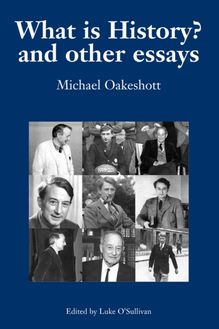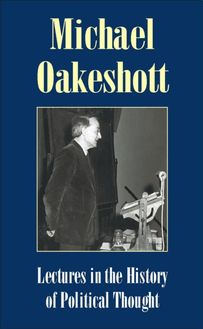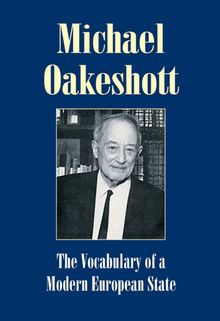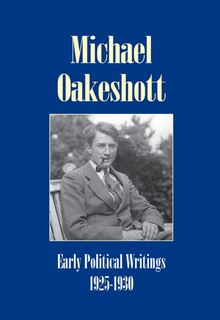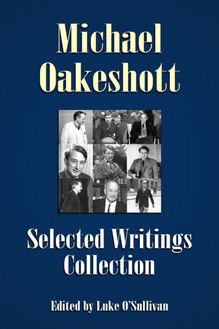-
 Univers
Univers
-
 Ebooks
Ebooks
-
 Livres audio
Livres audio
-
 Presse
Presse
-
 Podcasts
Podcasts
-
 BD
BD
-
 Documents
Documents
-
- Cours
- Révisions
- Ressources pédagogiques
- Sciences de l’éducation
- Manuels scolaires
- Langues
- Travaux de classe
- Annales de BEP
- Etudes supérieures
- Maternelle et primaire
- Fiches de lecture
- Orientation scolaire
- Méthodologie
- Corrigés de devoir
- Annales d’examens et concours
- Annales du bac
- Annales du brevet
- Rapports de stage
La lecture à portée de main
Vous pourrez modifier la taille du texte de cet ouvrage
Découvre YouScribe en t'inscrivant gratuitement
Je m'inscrisDécouvre YouScribe en t'inscrivant gratuitement
Je m'inscrisEn savoir plus
Vous pourrez modifier la taille du texte de cet ouvrage
En savoir plus

Description
Sujets
Informations
| Publié par | Andrews UK |
| Date de parution | 24 octobre 2011 |
| Nombre de lectures | 0 |
| EAN13 | 9781845403041 |
| Langue | English |
Informations légales : prix de location à la page 0,0000€. Cette information est donnée uniquement à titre indicatif conformément à la législation en vigueur.
Extrait
Title Page
LECTURES IN THE HISTORY OF POLITICAL THOUGHT
Michael Oakeshott
Edited by Terry Nardin and Luke O’Sullivan
Publisher Information
This collection copyright © Imprint Academic, 2006
The moral rights of the author have been asserted
No part of any contribution may be reproduced in any form without permission, except for the quotation of brief passages in criticism and discussion.
Originally published in the UK by Imprint Academic
PO Box 200, Exeter EX5 5YX, UK
Originally published in the USA by Imprint Academic
Philosophy Documentation Center
PO Box 7147, Charlottesville, VA 22906-7147, USA
Digital version converted and published in 2011 by
Andrews UK Limited
www.andrewsuk.com
Preface
This second volume of Michael Oakeshott’s Selected Writings comprises the previously unpublished lectures Oakeshott gave at the London School of Economics and Political Science during the late 1960s, shortly before he retired as Professor of Political Science. Oakeshott had begun to prepare the lectures for publication, then abandoned the project. Among his papers, now in the Oakeshott archive at the LSE, was a photocopy of a typescript that he had corrected by hand and parts of which he had evidently had retyped. Copies of a slightly earlier typescript were circulating privately. We have used the LSE copy of Oakeshott’s revised typescript, but we have checked it against copies of the earlier typescript and relied on the latter when the revised typescript was incomplete or unclear. We have not been able to find the originals of these typescripts.
The volume is a joint effort. Terry Nardin prepared a working transcript from the typescript in circulation. Luke O’Sullivan revised that transcript in the light of the revised typescript and other material in the archive. Both editors worked on the Introduction, with Nardin revising O’Sullivan’s draft. The indexes were prepared by O’Sullivan. Keith Sutherland at Imprint Academic did much to improve the physical appearance and layout of the text.
The editors are grateful to the LSE for consenting to the publication of material from the archive. We are also grateful to those who have supported the project, including Kenneth Minogue and Timothy Fuller, whose gift of Oakeshott’s papers established the archive, and the many well-wishers at the Michael Oakeshott Association, who helped publicize the Selected Writings . We want to thank the staff of the LSE archive, particularly Sue Donnelly and Anna Towlson, for their help. Thanks, too, go to David Boucher, James Cotton, Robert Grant, and John R. Parr for sharing their copies of the lectures and other information. Finally, we are grateful to Imprint Academic, whose support for Oakeshott scholarship has been central to the growing interest in Oakeshott’s thought during the last few years.
Editors’ Introduction
Michael Oakeshott was appointed Professor of Political Science at the London School of Economics and Political Science in 1951. Soon thereafter he established an annual course on political thought. We do not know what topics he took up at first. Teachers of political thought often focus on canonical works, and Oakeshott may have begun this way. His course was aimed at undergraduates new to the subject, and for such students the most suitable materials are the ‘classics’—texts that have, for one reason or another, outlived their original contexts. Such texts, Oakeshott at one time thought, are especially suitable for teaching how politics can be understood historically or philosophically. [1]
Oakeshott’s lectures, we are told, ‘laid bare the subtleties of Hobbes and Hegel, Mill and Green’ and ‘were packed with students from all disciplines’ across the LSE. [2] ‘Running from Plato to John Stuart Mill’, the course soon ‘became more or less the centre of gravity in that vast school’. [3] But later the focus seems to have shifted from texts to contexts. The last version of the lectures, which we present here, is a study of ideas in relation to their contexts, not a study of texts. Nor is this study of contexts a continuous story; it is an exploration of four particular contexts, the political experience of the ancient Greeks, the Romans, the medieval Europeans, and modern Europeans—‘different peoples, at different times, in different intellectual and physical circumstances, engaging in politics in different ways and finding different things to think about it’. [4] The result is a study of the political thought of these peoples, not a tour of the classics.
Those who attended the lectures remember their intellectual substance and vivid presentation. Oakeshott had something to say and could say it well. ‘The course showed with what sureness of touch he married a commanding vision of the various styles of doing politics in the Western world, their vocabulary and idiom, with the requirements of an undergraduate audience, generally new to this kind of subject’. [5] A former student describes Oakeshott as a ‘polished, stylish lecturer’ whose ‘lectures (delivered from very full notes) were invariably well constructed, and interesting’. [6] Others confirm that he preferred lecturing from a detailed script, which he would then abridge or embellish as the occasion required. [7] ‘He raised his voice sufficiently to be heard by everyone’ but ‘he did not project it forcefully or vary his tone very much; perhaps he disdained any oratorical devices’. [8] Maybe so, but he knew that lectures are performances. ‘A particular feature was the opening of the lecture. Other lecturers traditionally walked down the centre aisle of the theatre, but Oakeshott had found a mysterious back entrance that enabled him to appear through the curtain behind the lectern, greeted each time by a storm of applause’. [9] Reading the lectures, one can imagine Oakeshott at his podium and enjoy, vicariously, the experience of being among his audience.
For Oakeshott, that audience was emphatically one of listeners, not readers. During his lifetime, Oakeshott would not agree to publish the lectures. But the typescript shows evidence of revision with an eye to publication. Several of the medieval chapters, for example, break from the pattern of short paragraphs crafted to be spoken, and seem to have been done after Oakeshott retired in 1968. That he allowed the lectures to survive amongst his literary remains is further evidence that he was not decisively opposed to their surfacing posthumously. [10] Fortunately, they are a pleasure to read—crisp, cogent, clear, and engaging. Although they do not contribute directly to current scholarship, the lectures fully merit inclusion in a series of his selected writings. Oakeshott’s readings of the historical scholarship and classic texts offer views on Greek, Roman, medieval, and modern political thought that students and teachers will find illuminating and stimulating. Moreover, and perhaps more importantly in the present context, they shed new light on Oakeshott’s own thinking. They do so not least because they enrich our picture of his self-conception as a teacher as well as a scholar of political thought. The aim of this introduction is, therefore, not only to give some idea of the content of the lectures, but also to indicate how they relate to the rest of his work. The first lecture is particularly worthy of close attention, after which we shall look in turn at each of the four periods he discusses.
Oakeshott’s Introduction (Lecture 1)
Oakeshott declared in his opening address that the course was intended as ‘an historical study’. Coming from a man with an abiding interest in the nature of historical inquiry, those words were more loaded than usual, and it will pay us to attend to them. Since the 1920s, Oakeshott had been revising his view of history as a distinct mode of theoretical understanding, and we are entitled to see this view as presupposed in his description of history as ‘a mode of thought in which events, human actions, beliefs, [and] manners of thinking are considered in relation to the conditions, or the circumstantial context, in which they appeared’. [11]
This was a subtle way of alerting his audience to what we might call his ‘one-damn-thing-after-another’ view of the historical process. His philosophy led Oakeshott to conceive of historical events as related to one another only by other events. Any attempt to reveal the overarching unity in historical events, anything like Hegel’s argument that the whole human past was the story of the development of freedom, lay beyond the remit of historical knowledge. Hence his remark to his students that ‘I cannot detect anything that could properly correspond to the expression “ the history of political thought”’, an expression that he mercilessly dissected at length elsewhere. [12]
It is also worth underlining that Oakeshott was challenging any version of the belief that a clear direction of ‘progress’ was visible in the history of political thought, aiming thereby to cut across traditional distinctions between ‘left’ and ‘right’ in the interpretation of the history of political ideas. Hegelian, conservative, liberal, Christian, socialist, and Marxist thinkers have all entertained a belief that history was necessarily moving in a certain direction, but this was not the kind of view that Oakeshott thought a historical analysis of politics could support.
Such beliefs were usually inspired, in Oakeshott’s view, by the assistance such grand narratives offered in furnishing justifications of particular courses of political action. They were part of the subject matter facing anyone concerned with political thought, but the aim of historical inquiry was to study them, not engage with them on their own terms. And in these lectures, Oakeshott’s approach was anything but partisan. Anyone coming t
-
 Univers
Univers
-
 Ebooks
Ebooks
-
 Livres audio
Livres audio
-
 Presse
Presse
-
 Podcasts
Podcasts
-
 BD
BD
-
 Documents
Documents
-
Jeunesse
-
Littérature
-
Ressources professionnelles
-
Santé et bien-être
-
Savoirs
-
Education
-
Loisirs et hobbies
-
Art, musique et cinéma
-
Actualité et débat de société
-
Jeunesse
-
Littérature
-
Ressources professionnelles
-
Santé et bien-être
-
Savoirs
-
Education
-
Loisirs et hobbies
-
Art, musique et cinéma
-
Actualité et débat de société
-
Actualités
-
Lifestyle
-
Presse jeunesse
-
Presse professionnelle
-
Pratique
-
Presse sportive
-
Presse internationale
-
Culture & Médias
-
Action et Aventures
-
Science-fiction et Fantasy
-
Société
-
Jeunesse
-
Littérature
-
Ressources professionnelles
-
Santé et bien-être
-
Savoirs
-
Education
-
Loisirs et hobbies
-
Art, musique et cinéma
-
Actualité et débat de société
- Cours
- Révisions
- Ressources pédagogiques
- Sciences de l’éducation
- Manuels scolaires
- Langues
- Travaux de classe
- Annales de BEP
- Etudes supérieures
- Maternelle et primaire
- Fiches de lecture
- Orientation scolaire
- Méthodologie
- Corrigés de devoir
- Annales d’examens et concours
- Annales du bac
- Annales du brevet
- Rapports de stage

